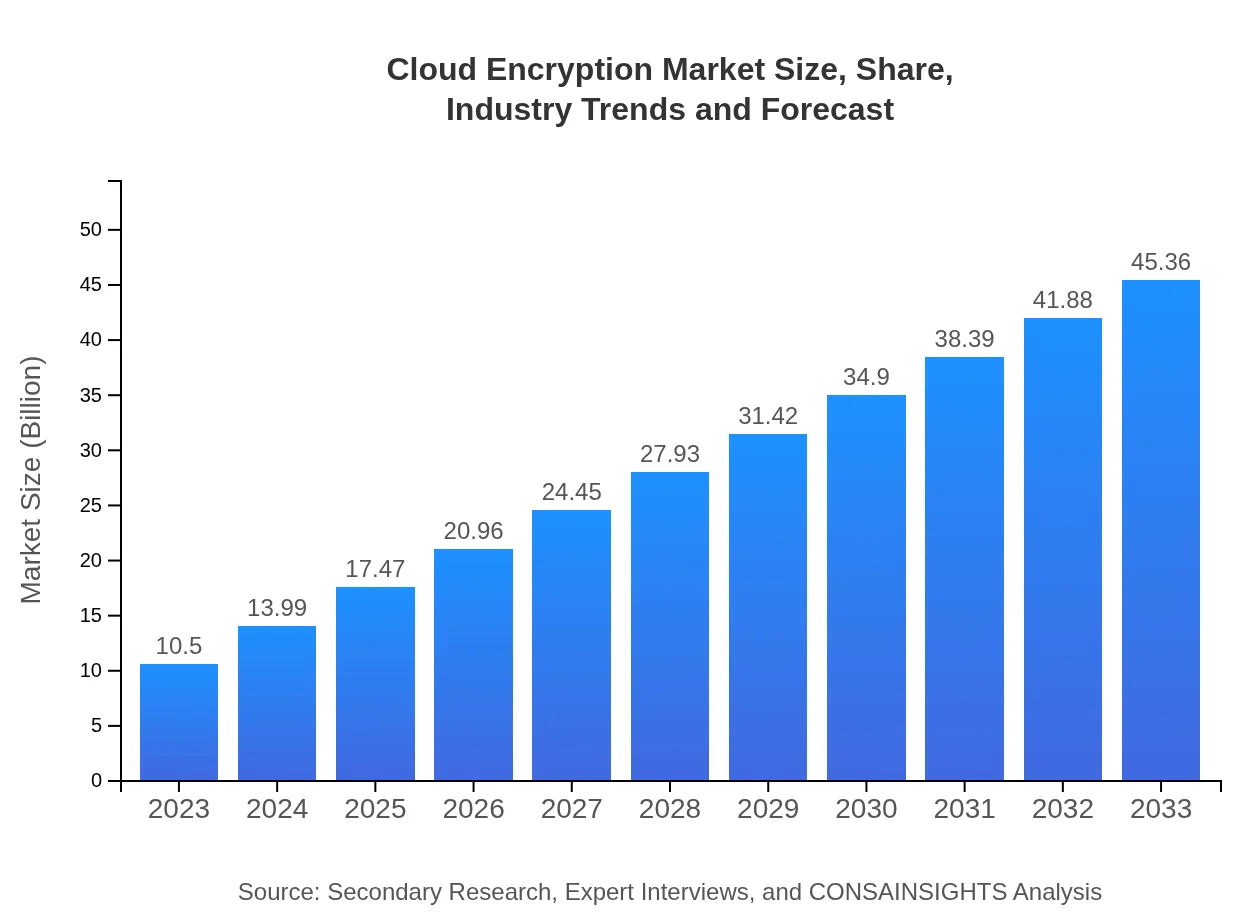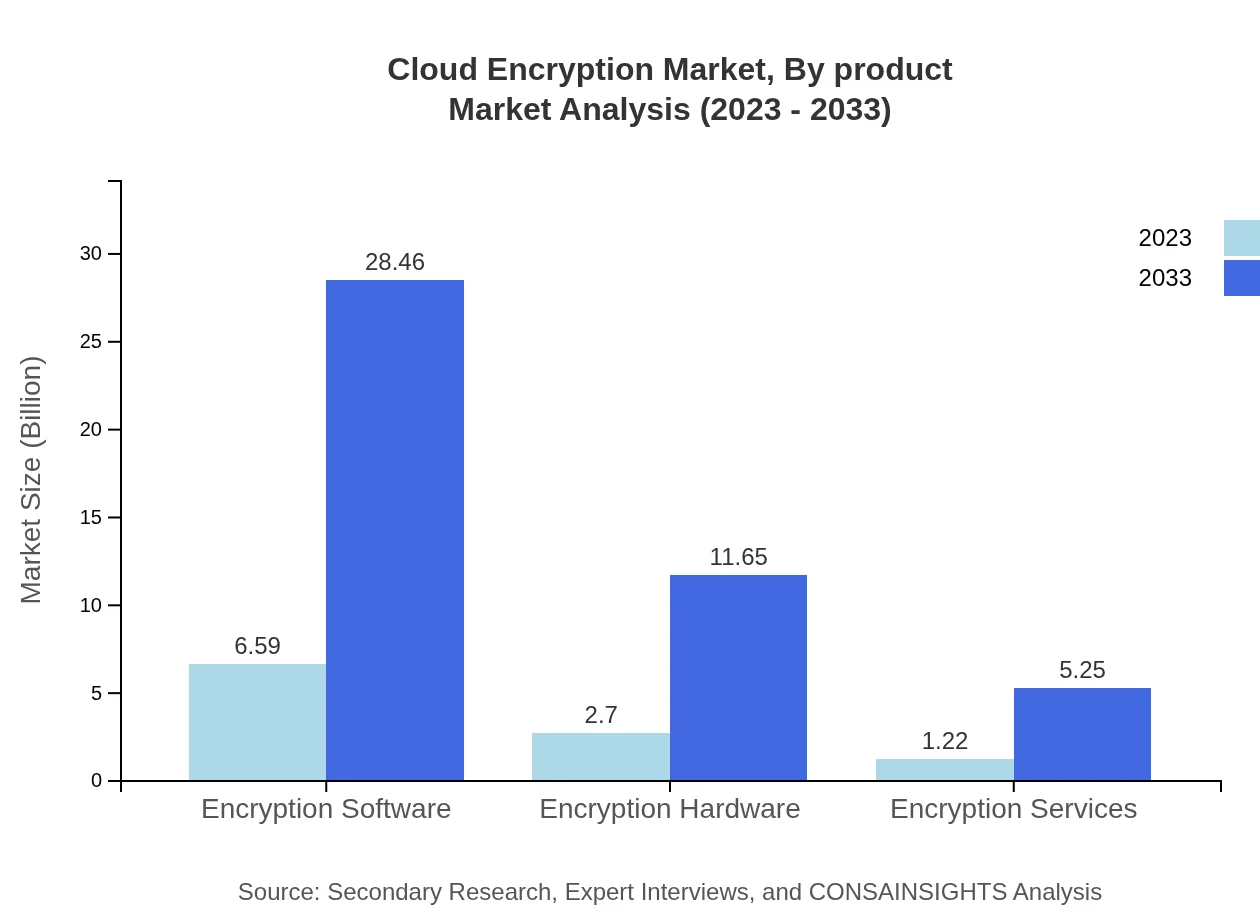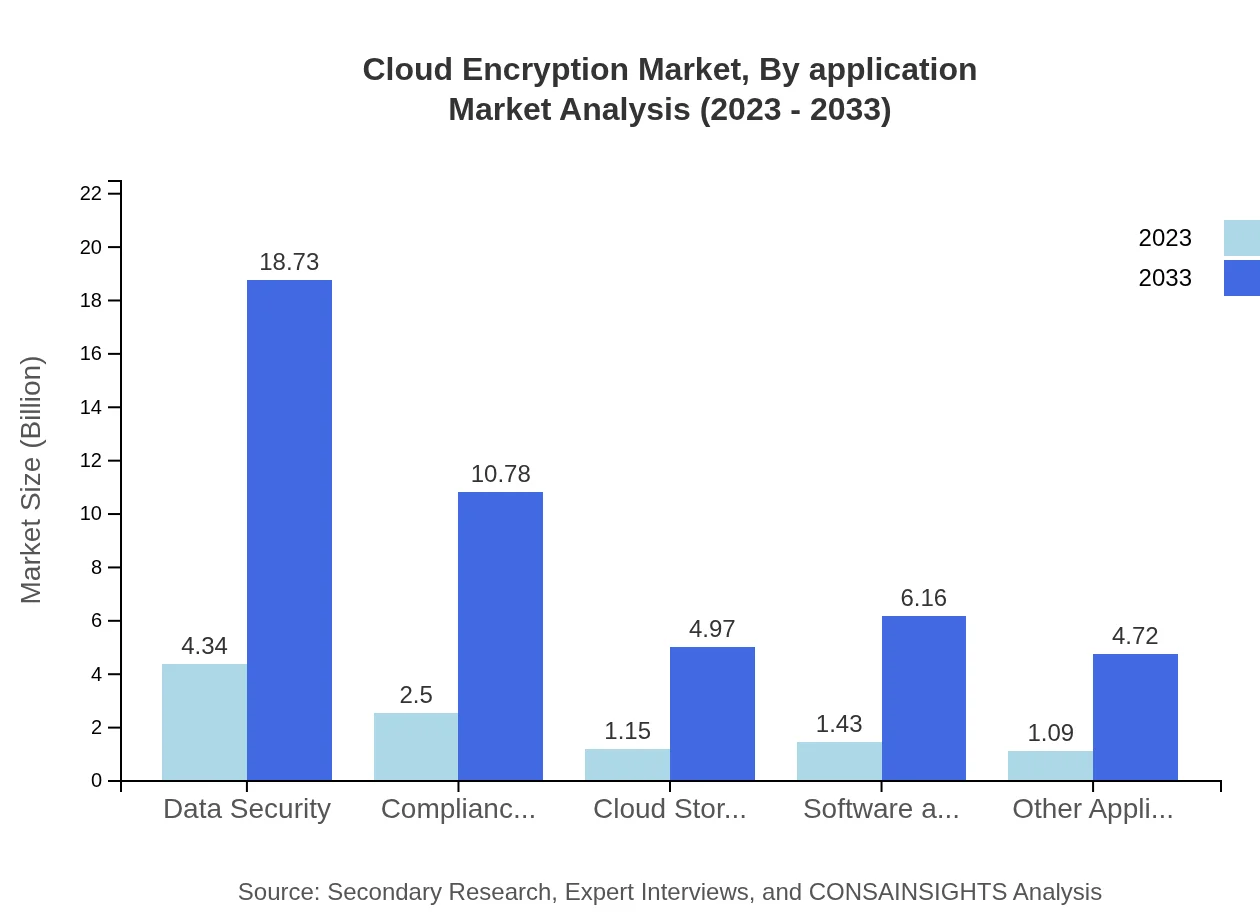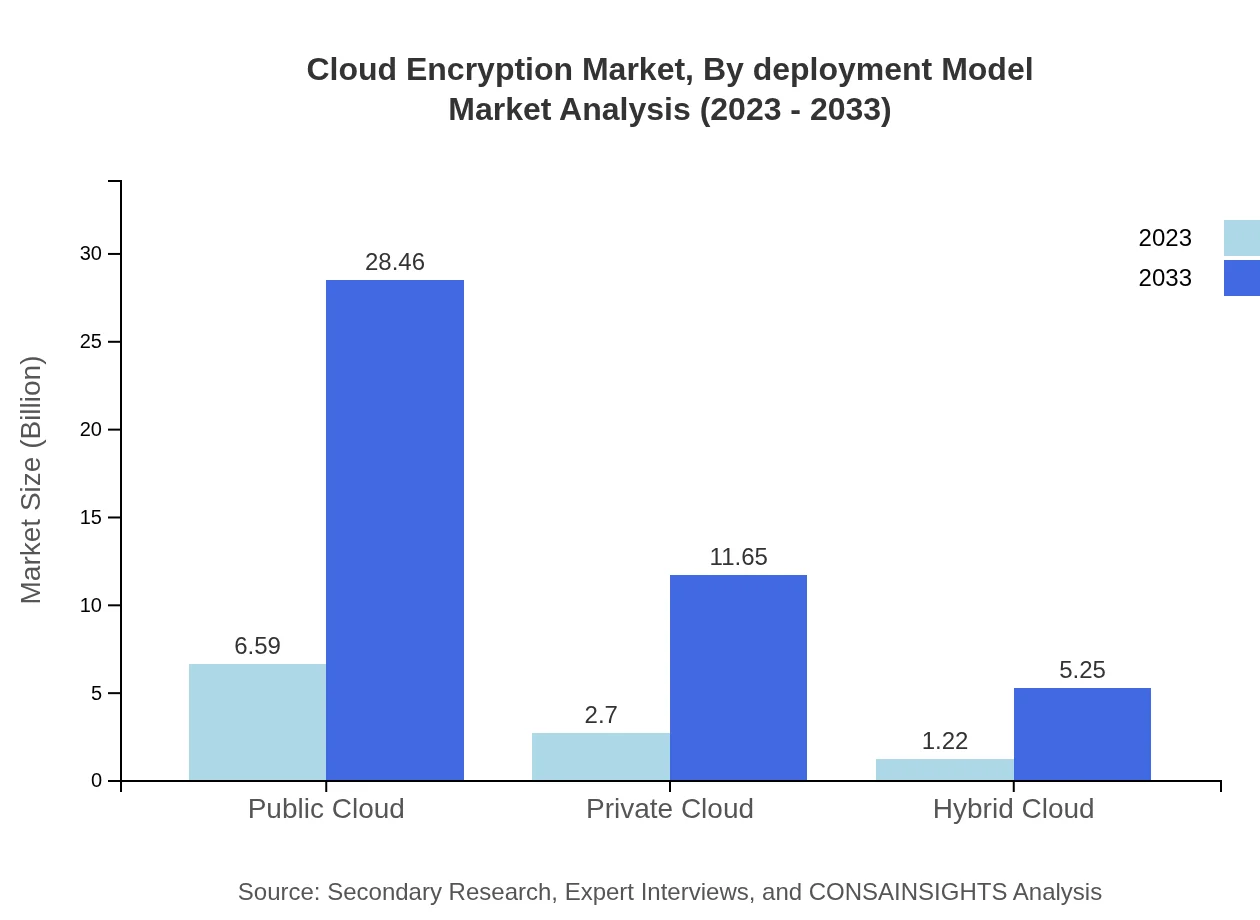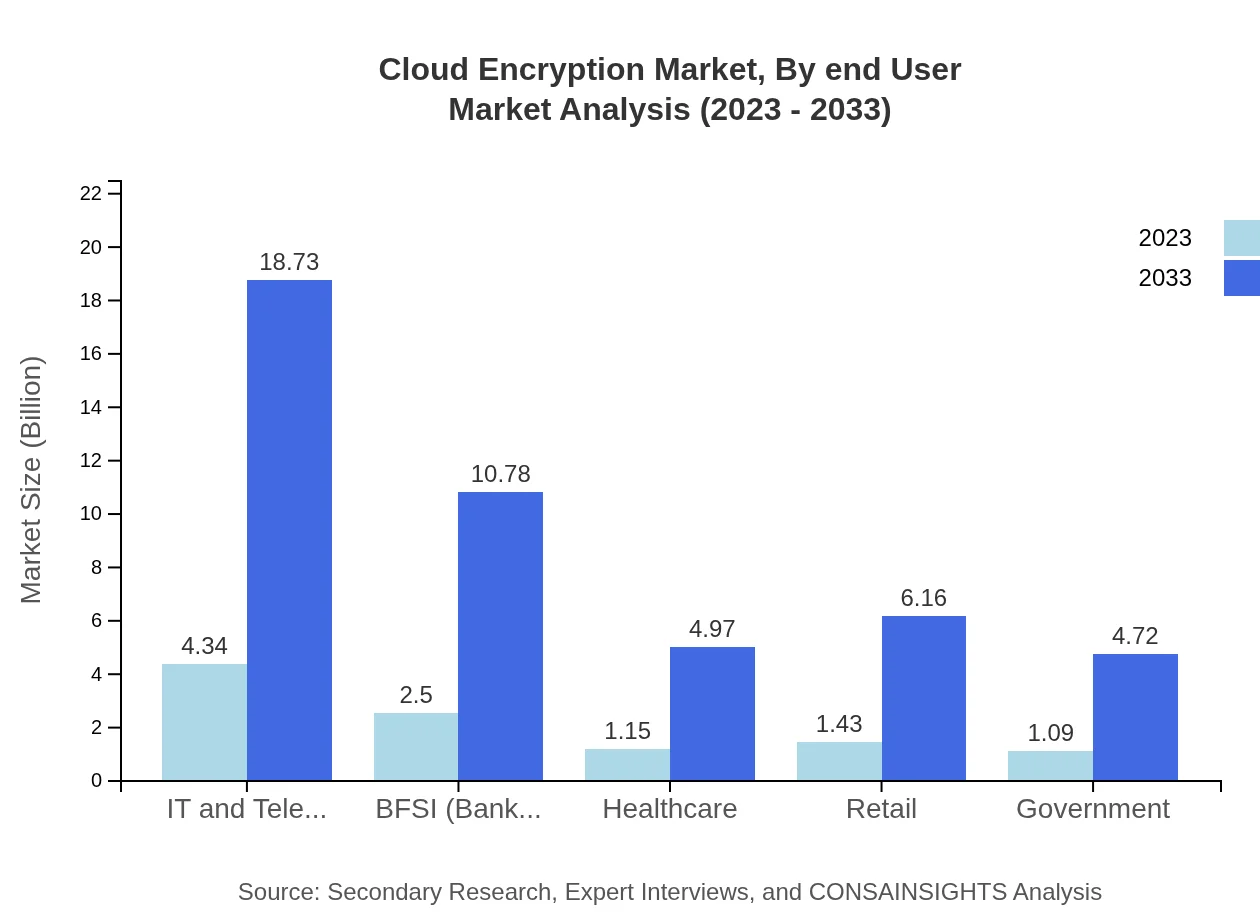Cloud Encryption Market Report
Published Date: 31 January 2026 | Report Code: cloud-encryption
Cloud Encryption Market Size, Share, Industry Trends and Forecast to 2033
This report provides an in-depth analysis of the Cloud Encryption market, examining market dynamics, growth trends, and forecasts for the years 2023 to 2033. Insights on market size, segments, regional analysis, and key players are thoroughly discussed.
| Metric | Value |
|---|---|
| Study Period | 2023 - 2033 |
| 2023 Market Size | $10.50 Billion |
| CAGR (2023-2033) | 15% |
| 2033 Market Size | $45.36 Billion |
| Top Companies | IBM Corporation, Microsoft Azure, Symantec Corporation, McAfee, LLC, Thales Group |
| Last Modified Date | 31 January 2026 |
Cloud Encryption Market Overview
Customize Cloud Encryption Market Report market research report
- ✔ Get in-depth analysis of Cloud Encryption market size, growth, and forecasts.
- ✔ Understand Cloud Encryption's regional dynamics and industry-specific trends.
- ✔ Identify potential applications, end-user demand, and growth segments in Cloud Encryption
What is the Market Size & CAGR of Cloud Encryption market in 2023?
Cloud Encryption Industry Analysis
Cloud Encryption Market Segmentation and Scope
Tell us your focus area and get a customized research report.
Cloud Encryption Market Analysis Report by Region
Europe Cloud Encryption Market Report:
The European market is projected to grow from $2.91 billion in 2023 to $12.57 billion by 2033, driven by stringent data privacy regulations such as GDPR, leading organizations to prioritize cloud encryption solutions.Asia Pacific Cloud Encryption Market Report:
In the Asia-Pacific region, the Cloud Encryption market is projected to grow from $2.06 billion in 2023 to $8.91 billion by 2033. The region is witnessing significant growth due to increasing cloud service deployments and rising cyber threats, particularly in countries like China and India, which are rapidly digitizing their economies.North America Cloud Encryption Market Report:
North America leads the Cloud Encryption market, with anticipated growth from $3.95 billion in 2023 to $17.08 billion by 2033. The region's advanced IT infrastructure and stringent data protection regulations create a conducive environment for cloud encryption technologies.South America Cloud Encryption Market Report:
The South American market for Cloud Encryption is estimated to grow from $0.73 billion in 2023 to $3.16 billion by 2033. Increased cloud adoption and the need for compliance with data protection laws are propelling the demand for encryption solutions in this region.Middle East & Africa Cloud Encryption Market Report:
The Middle East and Africa cloud encryption market is expected to increase from $0.84 billion in 2023 to $3.65 billion by 2033. Factors such as increased digitalization efforts and government initiatives to enhance cybersecurity are driving growth in this region.Tell us your focus area and get a customized research report.
Cloud Encryption Market Analysis By Product
In the product segment, encryption software leads the market, estimated at $6.59 billion in 2023, growing to $28.46 billion by 2033. Encryption hardware follows, valued at $2.70 billion in 2023, expanding to $11.65 billion. Encryption services represent a smaller share but are expected to grow from $1.22 billion to $5.25 billion, reflecting organizations’ reliance on expert services for secure data handling.
Cloud Encryption Market Analysis By Application
The application segment shows IT and Telecom as a primary sector, accounting for $4.34 billion in 2023 and projected to rise to $18.73 billion by 2033. BFSI follows, growing from $2.50 billion to $10.78 billion, while healthcare reaches $1.15 billion to $4.97 billion, illustrating the critical need for encryption in sensitive data environments.
Cloud Encryption Market Analysis By Deployment Model
Public cloud encryption dominates the deployment models, growing from $6.59 billion in 2023 to $28.46 billion by 2033. Private cloud solutions are also significant, expected to grow from $2.70 billion to $11.65 billion, while hybrid cloud services will rise from $1.22 billion to $5.25 billion, indicating a shift in preference among organizations for flexible solutions.
Cloud Encryption Market Analysis By End User
Key end-user industries include BFSI, IT and Telecom, healthcare, retail, and government. The BFSI sector, valued at $2.50 billion in 2023, is expected to reach $10.78 billion by 2033, emphasizing the necessity for strong encryption in finance. Retail is also important, with a rise from $1.43 billion to $6.16 billion, reflecting growing e-commerce security needs.
Cloud Encryption Market Analysis By Geography
Global Cloud Encryption Market, By Geography (Not Included) Market Analysis (2023 - 2033)
The geographical analysis of the Cloud Encryption market reveals significant growth opportunities across various regions, with North America and Europe leading the way. Asia-Pacific is emerging rapidly as a key player, driven by increasing digital adoption and a focus on cybersecurity measures. In contrast, the Middle East and Africa, while currently smaller, show promising growth prospects due to increasing digitalization.
Cloud Encryption Market Trends and Future Forecast
Tell us your focus area and get a customized research report.
Global Market Leaders and Top Companies in Cloud Encryption Industry
IBM Corporation:
IBM is a leading player in the Cloud Encryption market, offering a range of encryption solutions that ensure data security across public and private cloud environments.Microsoft Azure:
Microsoft Azure provides comprehensive cloud services, including robust encryption solutions designed to protect sensitive data stored in their cloud ecosystem.Symantec Corporation:
Symantec specializes in cybersecurity and has developed advanced encryption technologies that cater to various industries, enhancing data security in the cloud.McAfee, LLC:
McAfee offers encryption software that safeguards data across multiple cloud platforms, helping organizations meet compliance and regulatory requirements.Thales Group:
Thales Group is recognized for its cloud security services and encryption technologies, providing critical solutions for data protection in sensitive industries.We're grateful to work with incredible clients.









FAQs
What is the market size of cloud Encryption?
The cloud encryption market is valued at approximately $10.5 billion in 2023, with a projected CAGR of 15% through 2033, indicating robust growth and increasing adoption across various industries.
What are the key market players or companies in the cloud Encryption industry?
Key players in the cloud encryption industry include major technology companies such as IBM, Microsoft, Amazon Web Services, CipherCloud, and Thales. These firms are recognized for their innovative solutions and strong market presence, contributing significantly to overall market dynamics.
What are the primary factors driving the growth in the cloud encryption industry?
The growth in the cloud encryption industry is driven by increasing data security concerns, stringent compliance regulations, the widespread adoption of cloud solutions, and the need for robust data protection mechanisms in enterprises leveraging digital transformation.
Which region is the fastest Growing in the cloud encryption market?
The fastest-growing region in the cloud encryption market is North America, projected to grow from $3.95 billion in 2023 to $17.08 billion by 2033, reflecting a significant increase in demand for secure cloud solutions across various sectors.
Does Consainsights provide customized market report data for the cloud encryption industry?
Yes, Consainsights offers customized market report data for the cloud encryption industry. Clients can request tailored insights that cater specifically to their requirements, ensuring relevant and actionable findings.
What deliverables can I expect from this cloud encryption market research project?
Deliverables for the cloud encryption market research project include detailed market analysis reports, segmentation data, growth forecasts, competitive landscape insights, and region-specific trends, aiding informed decision-making for stakeholders.
What are the market trends of cloud encryption?
Current market trends in cloud encryption involve increased deployment of encryption solutions in SaaS and Public Cloud domains, growing integration with AI for threat detection, and expanding use in compliance with privacy regulations across industries.

